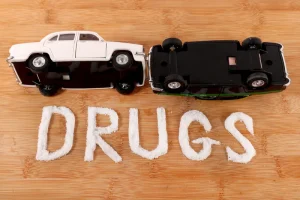Living with Alcohol Intolerance & Allergies

Genetic alcohol intolerance will be present during your entire life, so if it suddenly starts, it is typically due to another reason. The most common cause is starting a new medication that inhibits the enzymes needed to metabolize alcohol, leading to new intolerance symptoms. Metronidazole (Flagyl) and disulfiram (Antabuse) are the most common medications that cause this. Sulfites are preservatives, and most countries permit their addition to alcoholic drinks such as beer and wine. However, some people may experience allergy-like reactions after consumption.
Symptoms of an Alcohol Allergy
However, by understanding the underlying causes and managing your symptoms, you can continue to enjoy social events without sacrificing your health. It’s important to note that while these treatments may provide temporary relief, they do not address the underlying cause of your alcohol intolerance. If you’re experiencing severe or persistent symptoms, it’s important to talk with your doctor about your options for managing your condition. Alcohol intolerance can be a frustrating and uncomfortable condition to deal with, but fortunately, there are ways to manage it. One of the most effective ways to manage alcohol intolerance is to avoid drinking alcohol altogether.
Alcohol and feeling sick
Even if your parents don’t have the condition, they can pass it to you.
When to See a Healthcare Provider
- If you’re allergic to a specific ingredient in certain alcoholic drinks, switching to a different alcoholic drink may be an option.
- Currently, there is no cure for alcohol intolerance, but understanding and managing the condition can significantly reduce its impact.
- The amounts of histamine vary between wines, but generally, there is more histamine in red than white wine.
- The immune system usually produces antibodies to fight harmful substances in the body.
The acetaldehyde that builds up and causes alcohol intolerance is a major contributing factor in hangovers. While hangovers are often not exclusively due to high acetaldehyde levels, they play a large role. Someone who has alcohol intolerance is more likely to have a hangover, and hangovers that do occur will be more severe than they would have been otherwise. Alcohol intolerance can cause many symptoms and may differ between people. While there is some variation, most of these symptoms will be similar for everyone.

Immediate Symptoms
It’s typically related to an inability to properly process or metabolize alcohol. Alcohol what causes alcohol intolerance intolerance and alcohol allergy may share certain symptoms, but they are two different conditions. Some health conditions can also cause alcohol intolerance, while others can cause increased alcohol sensitivity. Repeated alcohol use causes the liver to become more “efficient” at eliminating alcohol from the body. This results in a reduction of alcohol in the bloodstream, alongside its intoxicating effects.

Difference from alcohol allergy

Unfortunately, nothing can prevent reactions to alcohol or ingredients in alcoholic beverages. To avoid a reaction, avoid alcohol or the particular substance that causes your reaction. If you’re allergic to another ingredient in certain alcoholic drinks, switching to a different beverage might be an option. A mild intolerance to alcohol or a particular ingredient in alcoholic drinks won’t usually require a trip to the doctor. No, alcohol intolerance is not the same as being intoxicated or drunk. Alcohol intolerance doesn’t mean you become drunk faster or after drinking less alcohol.
